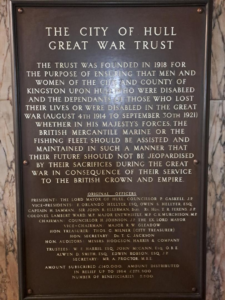
After the Great War, a national debate was ignited concerning, how disabled servicemen from the Great War would support themselves and their families, if they could not return to their former trade because of their disabilities. Hull had lost over 7,000 men in the war with another 14,000 wounded and the Hull Daily Mail had long reported many cases of financial hardship, where discharged soldiers and their families, were receiving little or no support.
Hull therefore established its own charity called the Hull Great War Trust, to offer practical assistance to disabled Hull servicemen and their families. The Trust was founded to :-
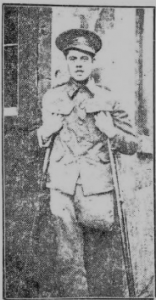
- Alleviate distress amongst Hull men caused by their war service
- Secure lasting care for the totally disabled
- Aid the partially disabled
- Maintain and educate war orphans
- Assist war widows and dependents
The Hull Great War Trust was initiated by the Hull shipping brothers, Frank Orlando Hellyer and Owen Stooks Hellyer. They wrote to the Lord Mayor of Hull in February 1918, with a donation of £30,000, seeking to help those who returned from the war.
The Great War Trust was established immediately after the Armistice in 1918. Based at the Guildhall, it was registered under the 1916 War Charities Act and appealed for £500,000 from voluntary subscriptions. By December,1918, it had raised £90,000, from all sections of the community, with most of the donations coming from well known fishing families at St Andrews Dock.
In June 1919, a full time General Secretary was appointed amidst much controversy. To start with, the post was incorrectly advertised, and within three days of the advert, Mr Arthur Proctor (1879-1965), from the Town Clerks Department, had been appointed on an annual salary of £400. The appointment and salary was criticised, as Arthur Proctor, had not seen active War service, and it was said that the job could be done better by a disabled serviceman.
It also emerged that five candidates, including three ex servicemen, had been interviewed for the post, and that one particular candidate, Sgt, Major, Wilson, who had considerable experience, had actually tied with Mr Proctor for the position. The casting vote was made by the charity’s acting chief, Major, Gleadow, who chose Mr Proctor, on his own initiative, without consulting the General Committee.
This led to the allegation that Mr. Proctor ‘had been elected, before he was selected’, and while Mr Proctor was a very capable person, it was seen as insensitive not to award the post to someone who had seen war service. (Mr Proctor, who was 37 years old, had tried to enlist during the War, but was rejected on health grounds.)
Some like Cllr. A Sheppard, Chairman of the ‘Federation of Discharged and Demobilised Soldiers and Sailors’, were particularly critical, claiming that the job should have gone to a disabled, ex-serviceman. Others believed the Secretary’s annual salary should have been reduced to £250, or the work done voluntary.
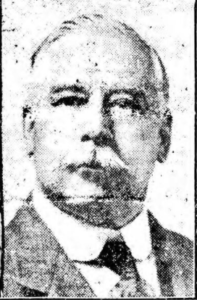
On the 12th May 1919, Cllr. Sheppard organised a noisy demonstration outside the Guildhall. Thousands of ex servicemen and members of the public protested loudly outside the Guild Hall, accompanied by three musical bands. Extra Police were summoned to maintain order and divert traffic.
To pacify the situation, the Lord Mayor, Cllr. Peter Gaskell met a delegation from the crowd in his parlor. This included Cllr. Sheppard and two Hull war widows, Mrs Lush from 135 Welbeck Street and Mrs Blyth from 153 Lime Street, Hull. They submitted a petition signed by 13,000 citizens against Mr Proctor’s appointment. Cllr. Gaskell who had lost his only son in the war, sympathized with the widows and agreed that General Committee for the Trust would review the appointment. This was sufficient to disperse the protesters.
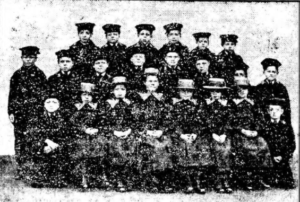
The issue was considered by the General Committee on the 7th June 1919 and the motion to remove Mr Proctor was defeated by 18 votes to 4. It was considered that Mr Proctor, an experienced organizer, should remain in the Permanent Secretary position.
The controversy had an adverse affect on donations. It was claimed that an anonymous Gentleman, had offered to provide 200 houses, rent free, for 50 years, to disabled servicemen, if the Permanent Secretary Post was re-advertised. It was also said that some £8,000 in public contributions were withheld because of the decision to retain Mr Proctor.
In time, the appointment of Mr Proctor was shown to be a wise decision. Mr Proctor, who “had done the work of three or four men during the war”, showed himself to be an astute administrator. He was able to organize, interview applicants and tabulate claims. Interest on Investments covered the cost of his salary and he loyally managed the Trust for 40 years.
After the Armistice, public opinion was divided over what the Hull Great War Trust should do. There were demands for a new £150,000 Technical College, new homes, a replacement school for Craven Street, additional wings for Hull Grammar School and permanent war memorials.
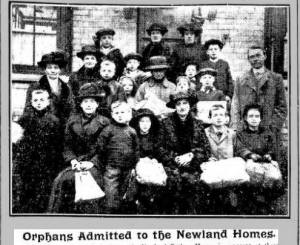
There were also disputes over who was eligible for grants and allowances. For example, The Eastern Morning News (12th August 1919) reported ‘What constitutes a Hull Man?’. It highlighted the case of a Londoner, who had enlisted in Hull at the outbreak of war, and then married a woman from Hull. He had then been invalided home, and now had four children, and was granted a disability allowance. Another case involved a Hull woman, who had married a man from Manchester, while he was convalescing in Hull. She had had his child before he died of his injuries, and was similarly awarded a grant.
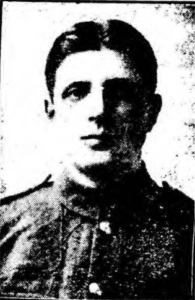
From time to time the Charity was criticised for not giving money to Institutions. For example, the Trust refused an application from the Spring Bank Orphanage, to repair the building, even though it held 43 children from servicemen killed in the war (Hull Daily Mail 11/01/1920). Similarly, an appeal to help 3,000 unemployed Ex-Servicemen in Hull was refused (Hull Daily Mail 11/01/1921), as was a £500 application grant from Ex Service Associations.
Some disabled servicemen also complained that the Trust’s grants were insufficient, that preference was given to those starting up businesses, or there were delays in being assessed.
Overall, The Trust stuck to its task of helping disabled men and their families and judicious investments led to large increases in the Fund’s capital. Much of its good work had to remain confidential due to the personal and intimate nature of the Trust’s work. However, there is evidence that the Trust reviewed all cases on merit, showing flexibility and compassion. Certainly those who received help were very grateful and the Great War Trust was admired outside Hull. For example, The London Daily Mail (18/10/1920), reporting on the £3 million being spent on War memorials in England and Wales alone, praised Hull’s Great War Trust for raising £145,000 for disabled men and relatives. This was seen as far more practical to help those who survived.
The Great War Trust helped Hull servicemen and their families in many ways.
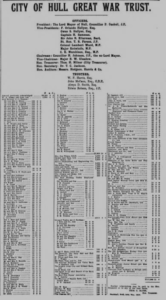
By June 1919, the Great War Trust had collected £130,000 and on the 15th July 1919 the Trust began to speed up its work. It considered applications from men with at least 50% disability, and awarded grants up to 10 shillings a week, and allowances, not exceeding £25.
Records show that it provided family grants of £30 to purchase furniture, £4 for cutlery, £20 for fruit stock and two £25 Business grants (Hull Daily Mail 14/9/1920). These one off grants switched to regular allowances, which gently increased over time to reflect a man’s increasing earnings.
The 1921 ‘Report on Year’s Work’, shows that the Hull Great War Trust, dealt with 563 new claimants, six carried forward and 269 Re-considerations, during the year. Awards were given to 118 men and 36 women; lumps sums to 55 men and 61 women; periodic payments to 54 men and 30 women; 42 men and 67 women received allowances (15 of these (4 men & 11 women) having continued from the following year. During 1920, income from investments was £7,249 and the Trust paid out £9,541. It had received £10,043 in donations up to 31/12/1920 and the Trust held £136,883 for ongoing awards. (Mr Proctor’s salary was increased to £500 per year on 11/01/1921. However, it was maintained that he could have earned considerably more if he remained working with the Town Clerks and the salary was covered by income from investments).
The Eastern Morning News (09/08/1921) reported that 53 men were receiving out patient treatment from the Trust for neurasthenia; eleven men were being treated in Institutions, with two more on a waiting list for treatment. The Trust paid for a Specialist Doctor to work full time with ‘shell shock’ cases.
Orphan children were given ‘day trips’ to Bridlington and a party at New Year’s.
The Trust supported disabled soldiers with small farm Holdings. Eighteen new Cottages with an acre of land, were built in Dunswell, at a cost of £830. Rents were kept low at only £26. per year, (although annual rates were between £8 & £12). Many of these Tenants had been severely disabled during the war – 4 men were blinded, 1 man had one arm, another had lost both legs, and one suffered from severe shell shock. The farms helped promote independent living and provide these men with a modest income.
On the 12th September 1922, the Great War Trust presented a magnificent Rugby Challenge Shield and initiated a new rugby League competition, to raise money through gate receipts. As well as promoting sport, the competition provided great entertainment. The final game in 1928, saw Hull FC beat Huddersfield at the Boulevard, 25 -14, and raised £74.00.
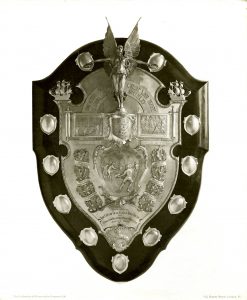
There is ample evidence to suggest recipients were very grateful for the Trust’s practical and useful assistance. There were good reports of disabled men starting up businesses and doing well; disabled ex servicemen being found employment, disabled adaptations being made to horse carts and homes, so that disabled men could continue to work. The Eastern Morning News (11/07/1922) reported that the Trust had provided a child of a disabled serviceman, with a University education and he had obtained a BA (Hons) Degree. Another beneficiary was a disabled child of a soldier killed in the war, who was given special help to allow him to walk and the child’s mother wrote a letter of thanks to the Trust.
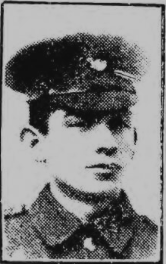
At the unveiling of the Kingston upon Hull memorial at Oppy Wood on the 10th March 1927, Major, P Robson, Sheriff of Hull, described the Hull Great War Trust as “the most wonderful organisation of its kind in any City within the Empire”
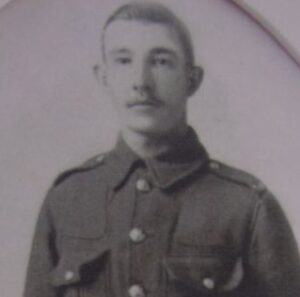
By 1923, the City of Hull Great War Trust had become a huge business, dealing with increasing numbers of ex servicemen becoming disabled with age. It became necessary to establish it as a Trust, regulated by Deed. Managed by a Committee, consisting of a President, Vice President and six Trustees. The Great War Trust administered funds of £140,000. (About £4 million today). The need for the Great War Trust grew as Hull ex servicemen grew older and their wounds worsened. By 9th January 1923, the Trust was dealing with 1,077 cases and distributing £10,907 in awards. By 1924 this had increased to 1,294 cases and the Trust was distributing £43,890 a year (£1.2 million). The local office of the Ministries of Pensions recorded that there were 20,000 disabled servicemen in Hull by 1924.
The City of Hull Great War Trust set out its aims in a Charter to assist those injured, and the dependents of those killed or disabled between the dates 4th August 1914 to 30th September 1921.
The Trust had powers to assist, disabled ex servicemen from Hull, their widows and other dependents, their children; provide temporary accommodation for orphans, and homes of rest for the incapacitated.
The Trust set aside some donations specifically for memorials at the request of subscribers. It helped fund the ‘Great East Window’, in Holy Trinity Church, which cost £1,500. This was a Memorial to fallen Officers. Beneath the window was placed a tablet and ‘Golden Book’ recording as best it could, all those that died in the war. The tablet was to cost £750 (of which £200 was donated by Mrs Shaw, the widow of Colonel G H Shaw, killed with 1/4th East Yorkshire Regiment)
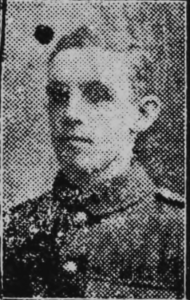
The City of Hull Great War Trust continued to help veterans and their dependents until 1983. On a number of occasions, in its history the Trust faced extinction due to a lack of donations. In 1936 its life expectancy was put at 12 more years. Then there was talk of starting another Trust after the Second World War. There was another closure scare in 1960 and it was nearly ‘Last Post’ in 1977, when two descendants from the First World War, died aged 92 and 86 years old. There was by then, just £810.40 (£2,800) left in the Fund to help 14 Beneficiaries. These included 9 Widows, 2 Spinsters, 2 widowers and 1 bachelor, receiving £46 per month.
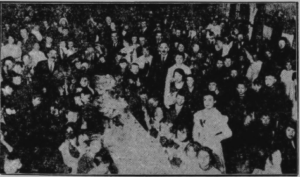
While the payment of grants and allowances may seem meager by today’s standard, it should be remembered that the Trust was established before Britain had a National Health Service and a Welfare State. Hull’s Great War Trust was a pioneering charity, wholly funded by voluntary donations. It was dealing with complex disability claims, which increased in number and changed over time. It became a delicate operation to make the Trust’s scarce funds last over the years. Trustees had to spend and invest wisely to predict income streams. It had to estimate how long claimants would require funding, or how many people would make new claims.
The Trust finally closed at 11am, on the 11th November 1983. in the Lord Mayor’s Parlor, where it had begun. A two minutes silence was held at the end of the meeting. The remaining funds were distributed equally between the last 7 beneficiaries, all of which were female relatives, aged between 60 and 90 years old.
The City of Hull Great War Trust had lasted 65 years. In all it paid out £289,000 to over 4,000 beneficiaries. As the Trust only recorded the main Beneficiaries and not their families, the Trust helped and supported considerably more Hull citizens.
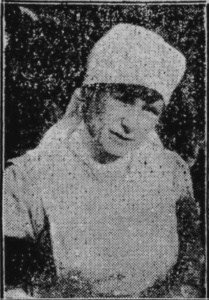
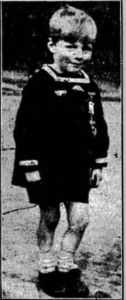
The City of Hull Great War Trust is a remarkable story. It is a tribute to City of Hull which pioneered this unique Charity to help its own disabled servicemen and their dependents. It’s a tribute to the People of Hull which donated so generously, and a tribute to the Trustees that framed the Charter and managed the Great War Trust for so long. The last man to apply for help was Mr A. Chester, who returned his £8 monthly pension in 1977. He asked to be taken off the Trust’s books and even returned £50 which he managed to save in payments, for those in more need. This nobly reflects how much the Trust was appreciated by those it helped.
The Hull Great War Trust Timeline
Set up at the Guildhall immediately after the Armistice in 1918. An appeal was made for £500,000. By December 1918, £90,000 had been raised, 75% of contributions came from fishing families.
In June 1919, a full time General Secretary is appointed amidst great controversy. At this stage £130,000 was raised.
By November 1922 – £141,733 had been raised. £29,00 had been paid out. 54 families were being totally supported by the Trust, another 100 are in receipt of weekly allowances supplementing Government aid. Business and Educational grants also awarded.
On 08/03/1923, the magnificent Great War Rugby Shield is presented. Broughton 8 points (1 goal, 2 tries) beat Hull 3 points (1 try) at the Boulevard, watched by 5,000 spectators.
By 1926 – £59,000 paid out in allowances, £14,000 in Grants
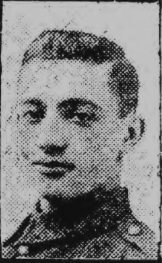
By 1958 – Payments total £267,000 (£36 million today)
By 1960 – 68 Beneficiaries left
By 1973 – Payments total £280,000 (20 Beneficiaries left)
By 1977 – Nearly ‘Last Post’ for the Trust (14 Beneficiaries left)
By 1981 – Payments total £285,000 (7 Beneficiaries)
In 1983 – Trust Closes on 11th November at 11am in Lord Mayors Parlor.
There were 4,005 Beneficiaries which received grants and allowances and total pension payments made were £289,060.44.
(£40 million)
